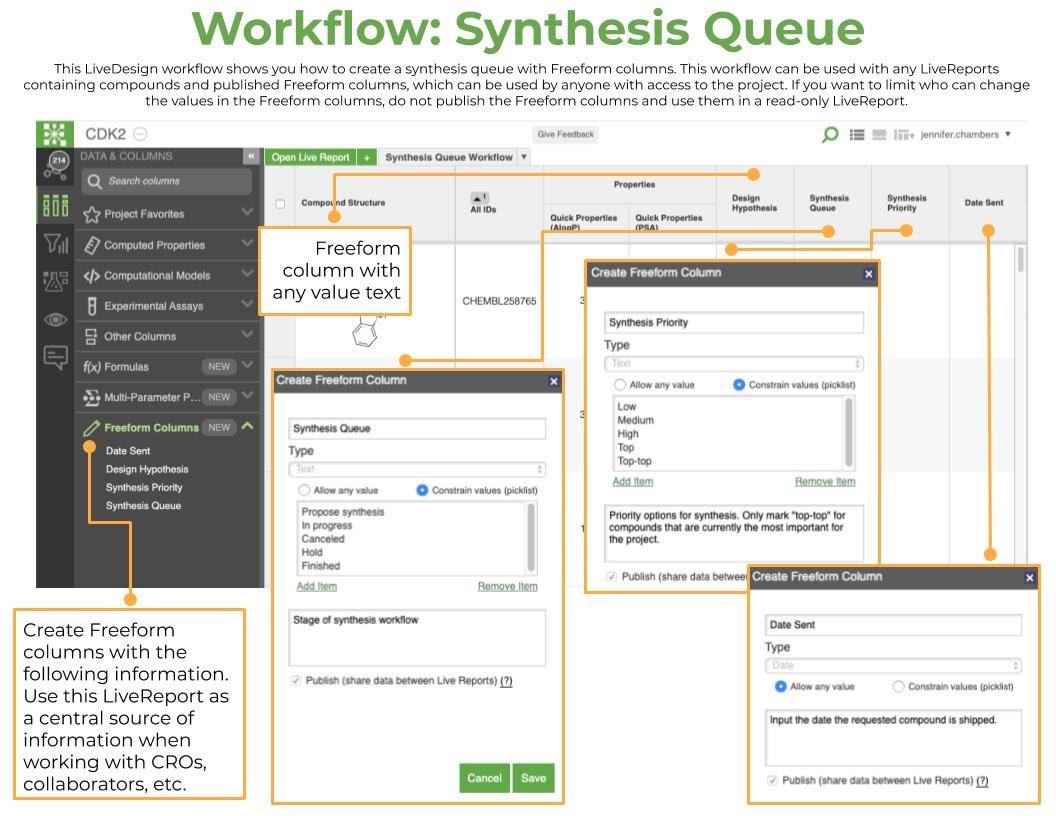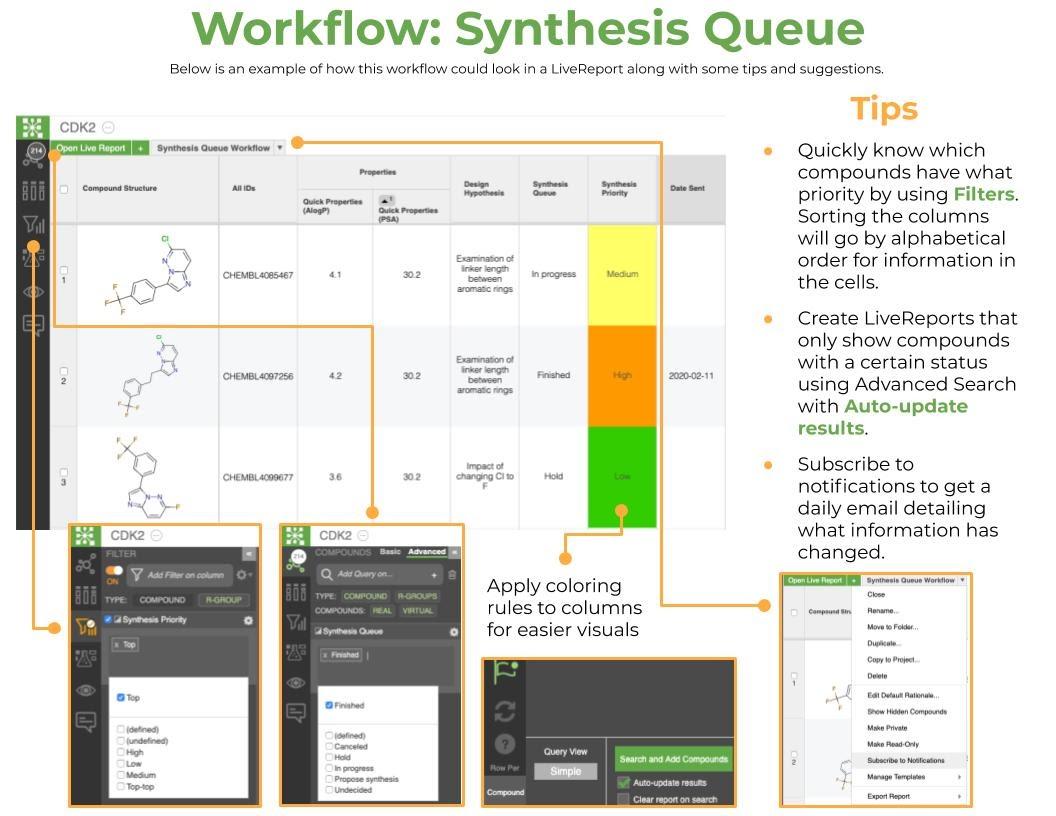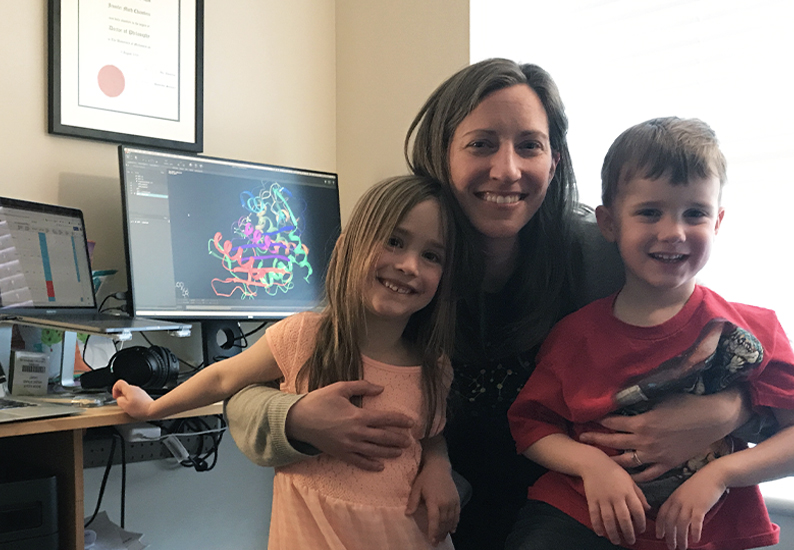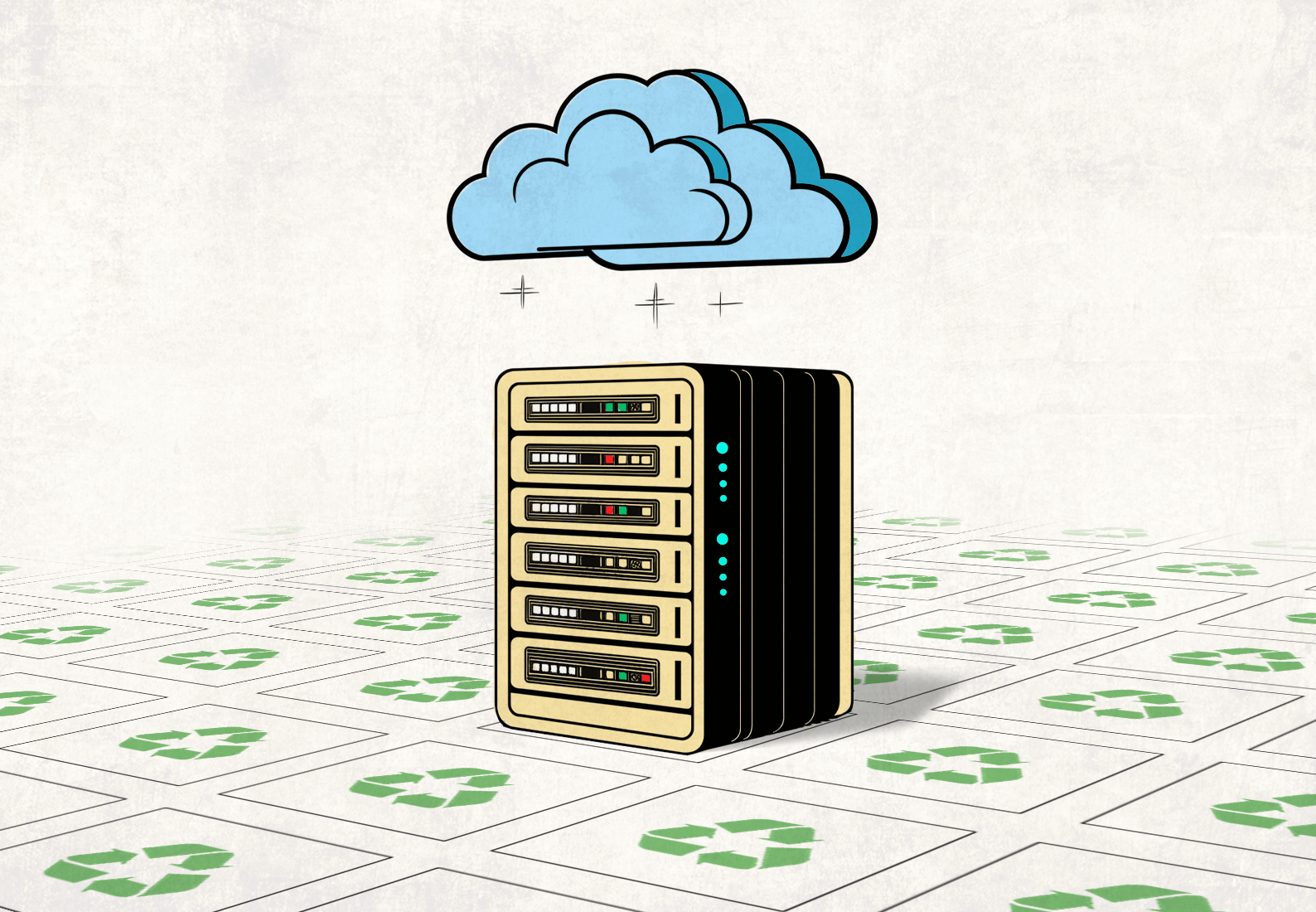As a parent of small children, I sometimes unexpectedly find myself needing to work from home. Many of us are in the same boat now – and for the long haul, as companies and schools around the world close their locations and move to off-site working to address the spread of Coronavirus. Collaboration can be tricky even when not working and learning remotely, but here are a few things I’ve found that help me still work effectively and collaborate with my colleagues when I’m at home. I’ll touch on education and learning, then address research collaboration.
Learning from Home
I work with the Schrӧdinger Education team, helping computational and medicinal chemists quickly learn how to apply our drug discovery platform technologies to impact their research and teaching. Over the years, I’ve seen an increasing need and desire for remote learning options. Connecting online allows participants to join from around the globe and digital courses allow for a flexible schedule and learning environment. There are many great general online learning resources available like Khan Academy or Coursera. We recently launched the Schrӧdinger Online Course, to address the need for specialized material on computational drug discovery and molecular modeling. It was immediately successful, allowing scientists to learn at their own pace, within their own work and life patterns, and to gain certification upon completion. Feedback from the first several sessions has been resounding, with many requests for additional courses. We have seen a sudden spike in interest following recent work-from-home edicts. It wasn’t something that we expected, but because the course is designed so you can readily continue learning while out of the office or lab, it makes sense. So, in response to the demand, we’ve now opened an extra course to offer additional online learning opportunities and we are working on new course topics to broaden the portfolio.
Research Collaboration from Home
Moving on to research, all of this made me realize that software that is set up to work securely anywhere can have a huge impact in a “suddenly working from home” situation. Making sure that everyone can access all the information they need, when they need it, is critical. Remaining connected with your colleagues is also essential – enabling collective ideation can be nearly as hard as the drug discovery project itself, especially when teams are geographically distributed or, like now, working from home.
When designing our online course, I made sure to spend time picking the brains of the computational and medicinal chemists in Schrӧdinger’s own Drug Discovery Group. Scientists such as Wayne Tang are great sources of insights into how drug discovery advances in the real world, based on his extensive experience in the pharmaceutical industry. I urge you to read more on his views in his latest blog, in which he explains how LiveDesign, our web-based informatics platform, has transformed how medicinal chemists on his team can share and collectively develop ideas. Our research teams are based mostly in New York City and Portland, Oregon, but spend time in other locations and rely heavily on remote collaboration. The current office closures are something they are all taking in stride.
Here are a few of the many ways LiveDesign helps Wayne and his colleagues with remote collaboration.
- Access to Data: LiveDesign is a web-based platform that updates in real-time, so it gives researchers access to their data, no matter if they are in one of the labs or working from home.
- Centralized Communication: LiveDesign eliminates issues of version control. Design work can very quickly become a nightmare of multiple emails and files with annotations like “FINAL_v2_new” in the name. With LiveDesign, I know I’m always looking at the most recent data and all the available information from synthesis queues, virtual screens, modeling calculations and test results.
- High-Level Overview: It’s easy to get a high-level look at how a project is evolving over time without having to get key stakeholders all into one room or on a call. The ability to get both the fine detail and the big picture at any moment, from anywhere, with all the data, was a game-changer for our medicinal chemists. LiveDesign makes research independent from being in the lab.
- Collaborative Creativity: LiveDesign gives us the ability to ideate, test, and advance compounds from wherever we need to be. It also means that we don’t quickly become out of the loop from the team or lose any idea that may pop up outside of the lab.
- Auto-Update Searches: I don’t have to manually search (or remember to search!) to get the latest information, nor do I have to track down people or emails to make sure I’m working with the most up-to-date data.
- Notifications: For certain LiveReports, such as a shared group discussion or compound tracker with a CRO, you can get a daily update summary about what has changed. No more manually checking reports and filtering for the newest information.
- Templates: Creating templates out of your favorite LiveReport can allow you to quickly pivot to new ideas, get new team members set up, and organize your workflows.
- Privacy Settings: Change LiveReports to read-only access or private to prevent accidental changes by people who need information but not edit permissions. Private LiveReports are a great way to get creative without potentially creating confusion in shared LiveReports.
- Workflows: The core of LiveDesign is the ability to set up efficient workflows between members of a project. For instance, a synthesis queue workflow (below) can be quickly set up using a few Free Form Columns, Auto-Update Searches, and Filters.


LiveDesign isn’t new science, but it is a better way to do science. Whether you are working remotely, with remote collaborators, or across different teams, LiveDesign keeps you connected and communicating efficiently. Wherever your computer is able to connect to the internet, your research is able to happen.
If you have any workflows that you’ve found save you and your team time, and you are able to share them, let us know! The Schrӧdinger Education team is always looking for interesting ways to advance scientific discovery that we can share with the community. Feel free to get in contact using education@schrodinger.com.










